Abstract: Diverging from traditional search methods that evaluate and rank prospective information sources, AI compiles a concise, singular response from all accessible data, tailored to match the user’s specific inquiry and context. AI also includes explanatory details, insights, and supplementary information within its responses.
Let me acknowledge from the outset that my headline may appear somewhat exaggerated, a common tactic nowadays to draw attention. While SEO is not completely obsolete at the moment, it is undoubtedly in decline. Over the next couple of years, many individuals will still resort to their familiar established search engines when seeking answers. Nevertheless, this habit established over three decades will slowly be replaced by users turning towards AI platforms that offer enhanced answers, quicker.
_Ever since Google was introduced in 1998, search engines have been the primary gateway to the vast resources of the internet. For 25 years, users have been conditioned to turn to a search engine for resolving queries.
Recent investigations contrasting AI and traditional search have revealed that:
- Users demonstrate 158% greater efficiency, as measured by the number of questions answered per hour when utilizing ChatGPT in comparison to Google.
- Users significantly favor AI over Google, rating AI at 6.06 and Google at 5.27 on a satisfaction scale of 1–7.
- Utilizing AI responses bridges the proficiency gap between users with varying levels of education, as opposed to the usage of Google. With conventional search engines, individuals with advanced degrees markedly outperformed less-educated users; however, this distinction diminished when ChatGPT was utilized for answering queries.
In this particular study, response quality was comparable between the two alternatives. Nonetheless, the AI representative in this scenario was ChatGPT 3.5, known to be less advanced than the current iteration, ChatGPT 4, let alone the anticipated quality of answers from the next release of ChatGPT.
On all three parameters, AI conversational agents decisively outperformed search engines. Once performance differentials exceed 100%, individuals begin to take notice and adapt even deeply ingrained practices. A similar phenomenon occurred in the late 1990s when Google surpassed competitors like Yahoo, Excite, Altavista, and other well-established yet weaker search engines by simply delivering superior responses at a faster pace.
I have transitioned my reliance for information inquiries to Perplexity.AI, my go-to platform for most data searches. (I do not have any financial interests in promoting Perplexity.AI; my recommendation is driven solely by aiding my audience). Perplexity offers a free version with reasonable performance, which markedly improves with a $200/year subscription. I willingly invest in this service to maintain an ad-free user interface, and I am doubly satisfied with the subscription version’s enhanced capabilities.
The primary contrast between the complimentary and premium services of Perplexity lies in the expanded compilation of responses from diverse web sources in the paid version, resulting in more comprehensive and insightful answers than the free version.
For instance, consider a typical design query that a UX designer might pose: “What are the significant Fintech UX case studies?” Here are the responses provided by Perplexity and Google:
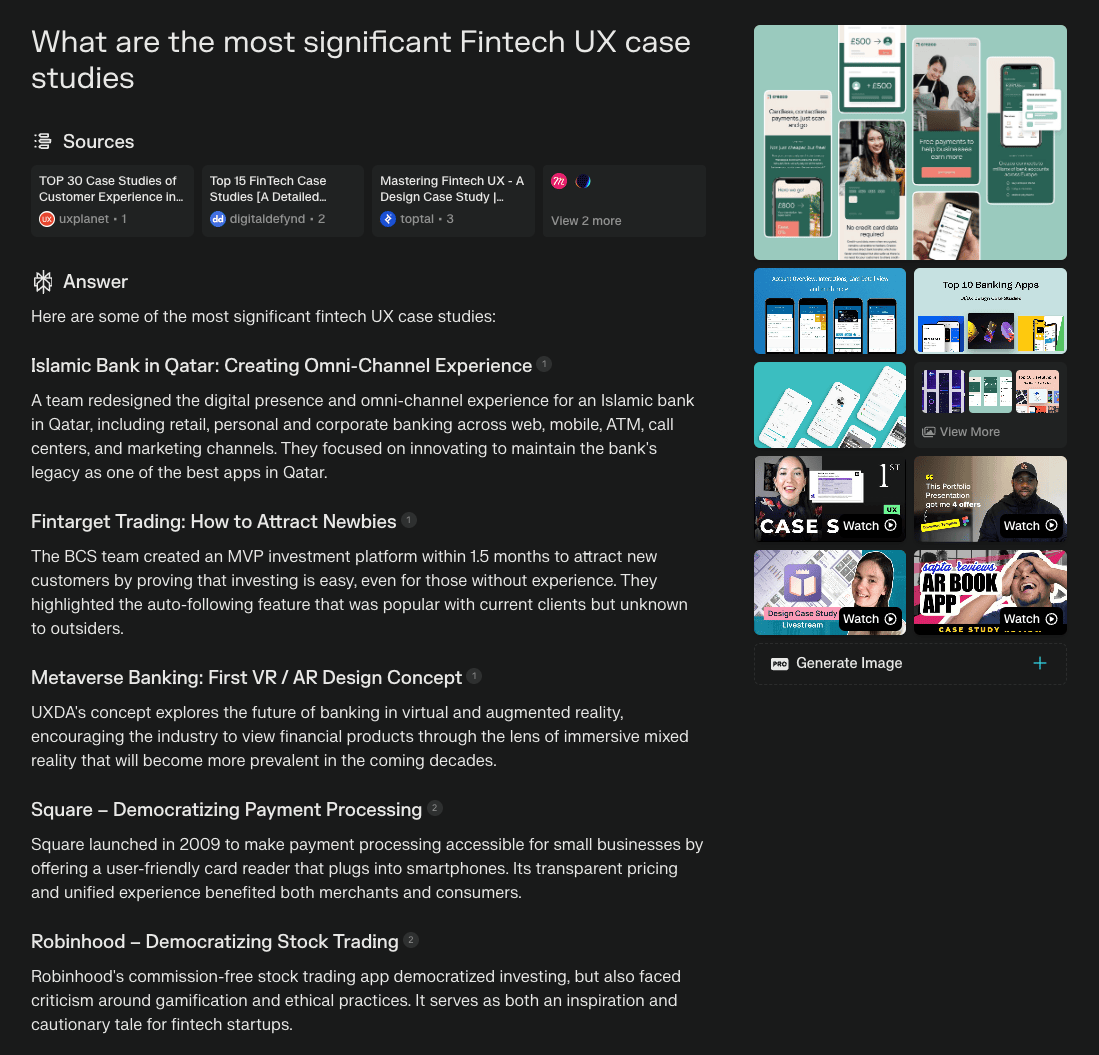
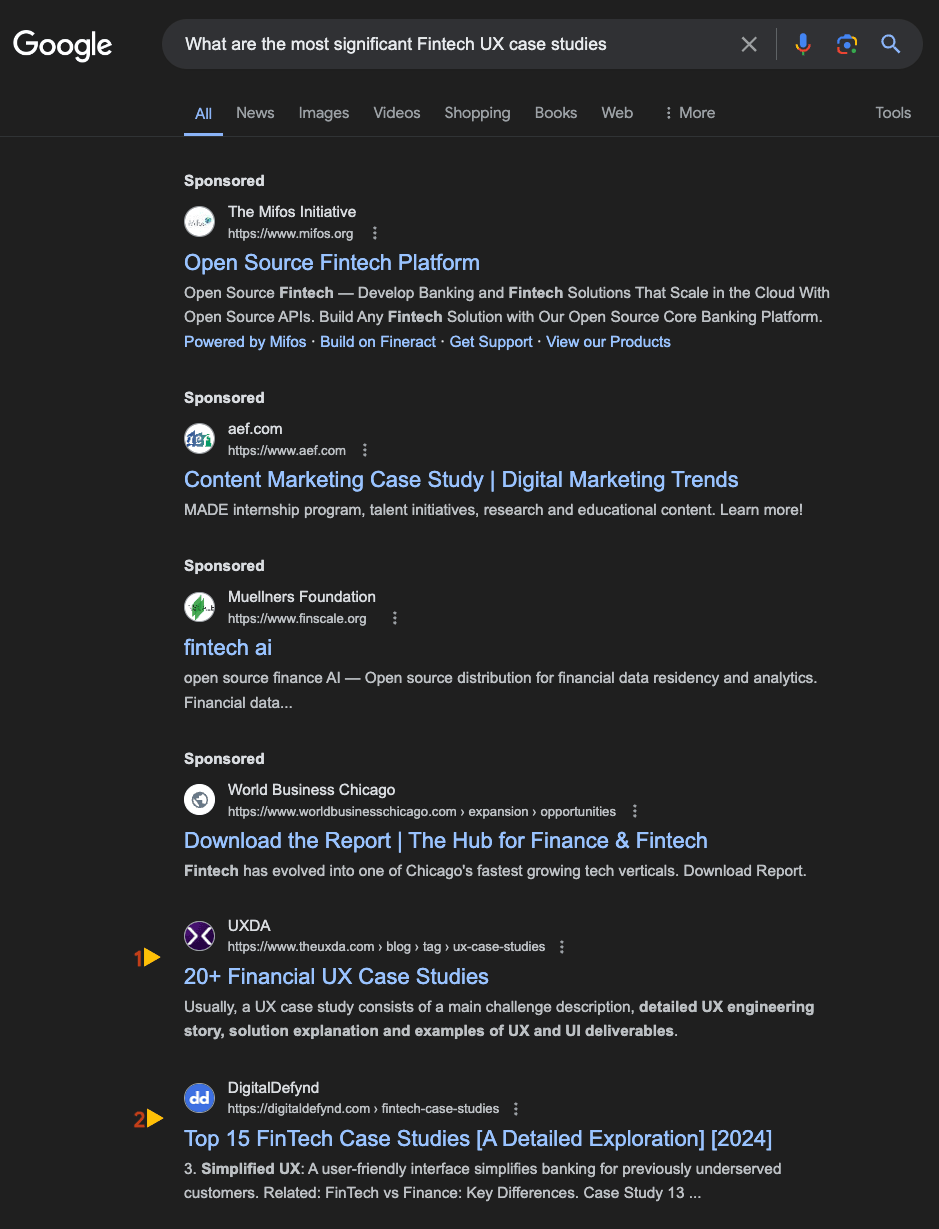
Google’s response to the same UX question
Both AI and the search engine offer the correct solution: formatting the credit card expiration date as MM/YY on e-commerce checkout forms. They also draw information from identical sources, including the Baymard Institute (a prominent authority on e-commerce usability), Stack Exchange, and Smashing Magazine. While Perplexity accesses three additional sources to enhance the information.
Google excels in succinctly articulating the response but also introduces confusion by echoing inaccurate options from Stack Exchange. In contrast, Perplexity triumphs by furnishing the most helpful response, incorporating multiple usability guidelines not directly queried but vital for designing this specific component of the e-commerce checkout process, such as enabling users to modify stored card details. In addition, Perplexity gains an edge by explicitly cautioning against the suboptimal practice of utilizing dropdown menus for data entry—a common design flaw prevalent on the web, ambiguously referenced by Google as a possible solution.
While this demonstration lacks a definitive winner, Perplexity emerges as my favored choice due to its enhanced support for designers and the provision of clear references for each guideline provided.
Both platforms offer subsequent questions that can be addressed with a simple click (significantly reducing interaction costs for mobile users). However, in this scenario, neither set of follow-up questions presents significant utility. (Due to the extended primary response, Perplexity’s follow-up questions were truncated in the earlier image.)
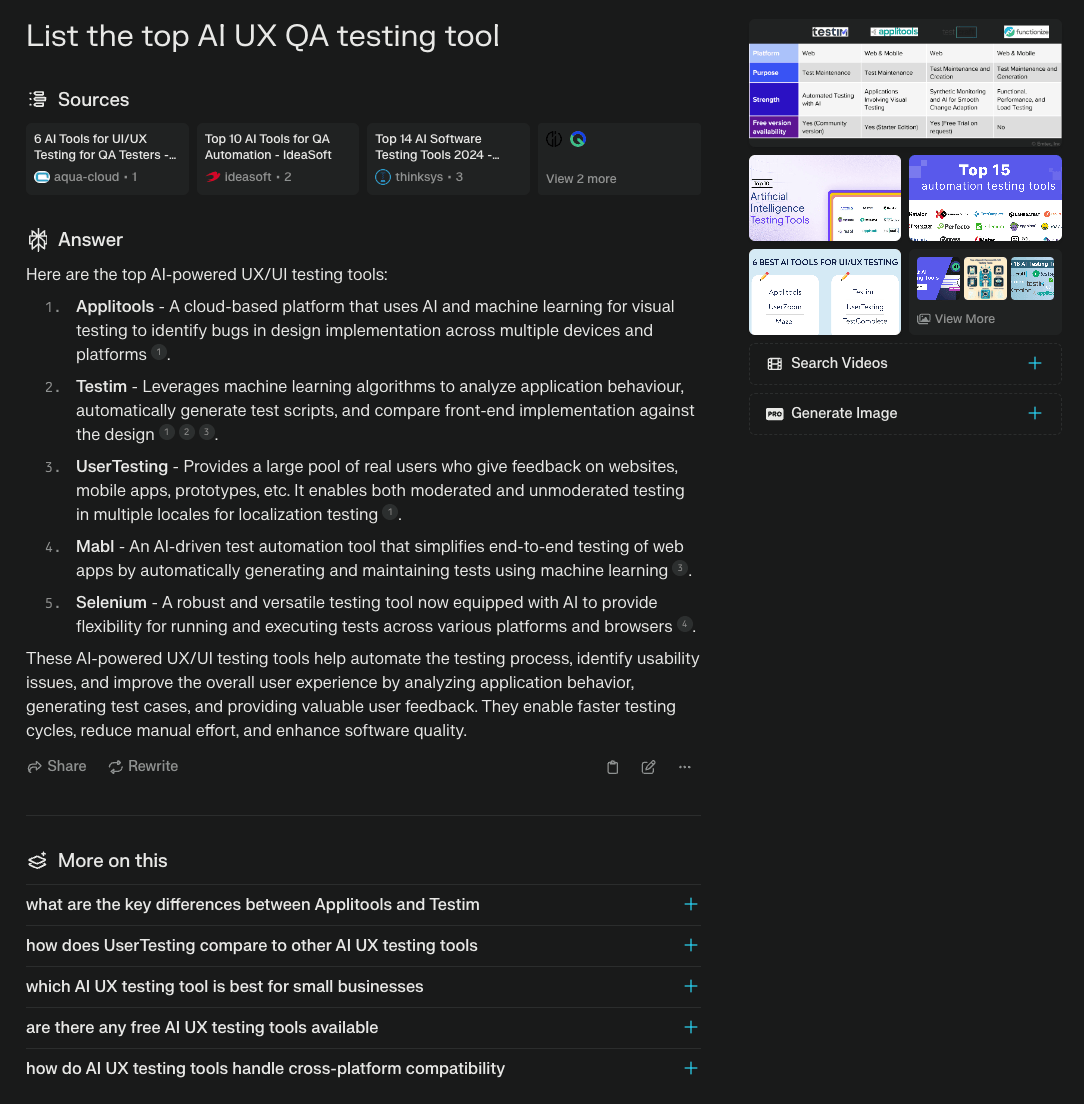
AI generally outperforms traditional search engines in terms of speed (as evidenced by the comprehensive quantitative analysis cited earlier) and the provision of more valuable responses. Admittedly, search engines could potentially evolve into AI conversational agents, a transition that might already be underway. Nevertheless, fundamental distinctions persist between these services:
- AI amalgamates a singular response from the entire pool of available data, imparting elucidatory and analytical insights—all encapsulated within a succinct article.
- Search identifies plausible information sources and arranges them in an order of presumed quality, with the most reliable sources displayed prominently. It does not offer supplementary details or analyze the response.
Hence, AI obviates the need for users to conduct their synthesis, a prerequisite when utilizing search engines. AI also highlights related aspects that users might have overlooked. While search users could chance upon such ancillary but critical information during their searches, they would also need to sift through extraneous data.
Most notably, AI formulates a personalized and concise article exclusively for the user, elucidating how the response pertains to their unique circumstances, information that AI deduces from user-provided “custom directives” (in ChatGPT) or earlier stipulations. AI can modulate the article’s complexity to align with the user’s proficiency level, offering intricate responses to highly educated individuals.
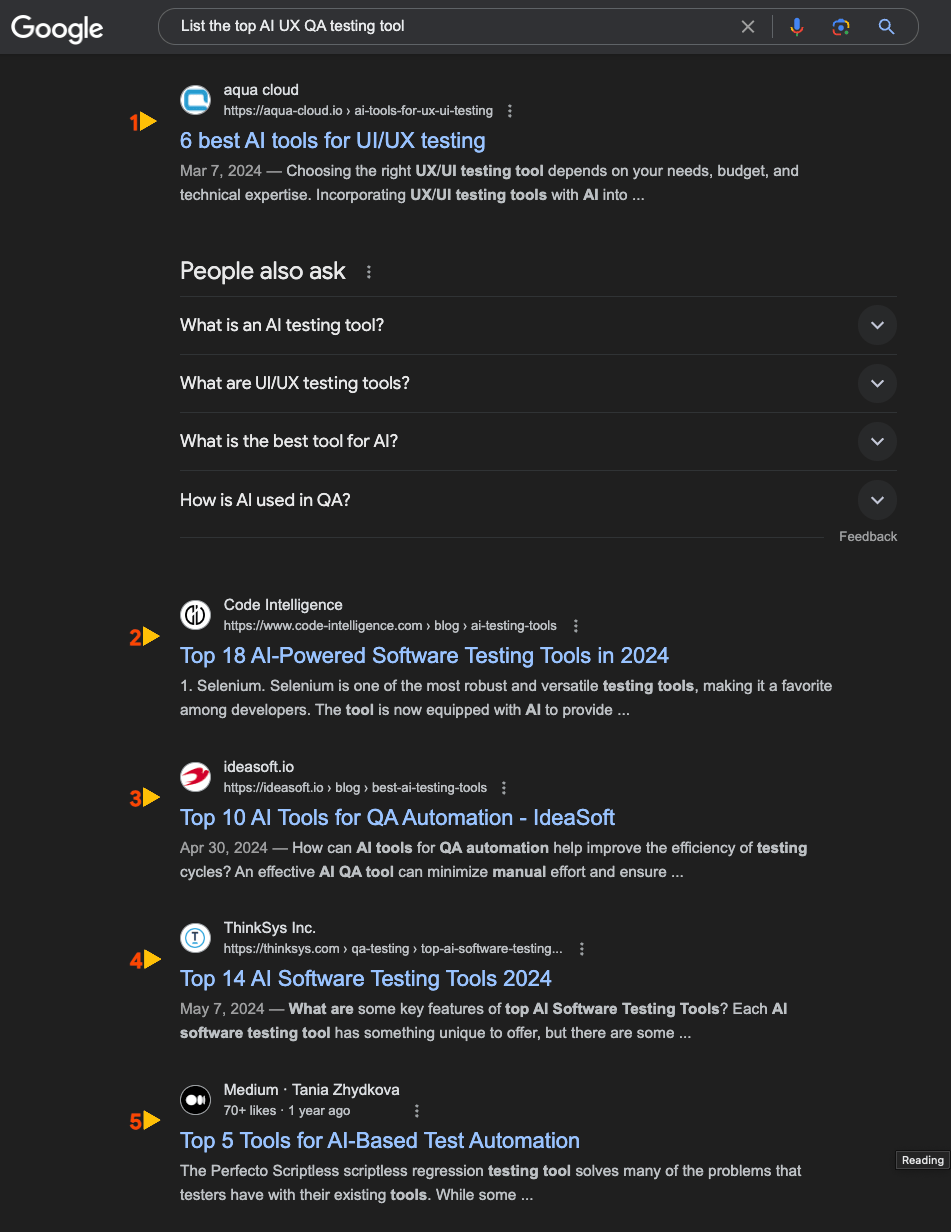
(Present AI systems sometimes exceed expectations with such personalized responses. For instance, when I inquired about the weather in Paris during May, Perplexity not only provided the requested information but also added, “As a UX researcher, you might appreciate the conducive weather conditions in May, facilitating interaction with local culture in outdoor settings. The pleasant climate encourages outdoor engagements, and one can anticipate Parisians enjoying the sun in parks or at various al-fresco cafes.” Yes, I did inform it about my profession.)
I work as a User Experience researcher, but my trips to Paris are not for work-related studies but rather for pleasure, to enjoy art and ballet performances alongside indulging in delicious meals.
When comparing, searching is akin to rummaging through vast piles of discarded items to find that one valuable gem hidden among the debris. Often, searchers have to sift through undesirable content like advertisements. It surprises me that Google did not clutter the Search Engine Results Page (SERP) for my query about credit card information during e-commerce checkout with excessive ads for credit cards or payment services.
In recent times, search results have almost taken a backseat on SERPs, often overshadowed by advertisements and the search engine’s own features. Information overload has even affected Google, which initially started with pristine pages during my time on their advisory board.
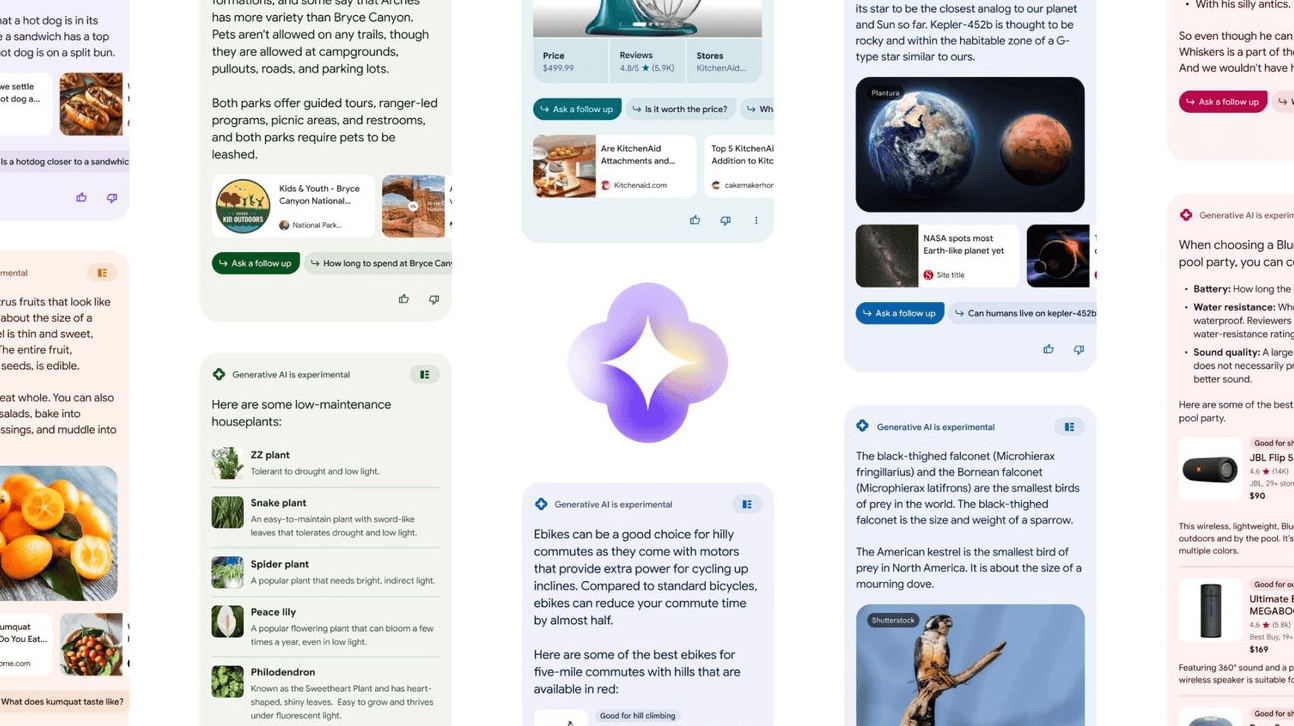
In contrast, Artificial Intelligence (AI) can be likened to a helpful and skilled attendant who provides the Lady of the House with a concise plan for a dinner party. All required information is presented succinctly, even including aspects she may have overlooked but which the attendant recalls from organizing numerous previous events.
Although the metaphorical attendant’s effectiveness may not always be optimal, AI continues to improve with each release, akin to how a real attendant enhances their service over years of experience in the same household. Currently, AI tools remain ad-free, as we are paying customers (approximately $200/year for Perplexity and $20/month for ChatGPT). I prefer paying a higher subscription fee to ensure that AI is solely focused on serving my needs to the best of its ability.
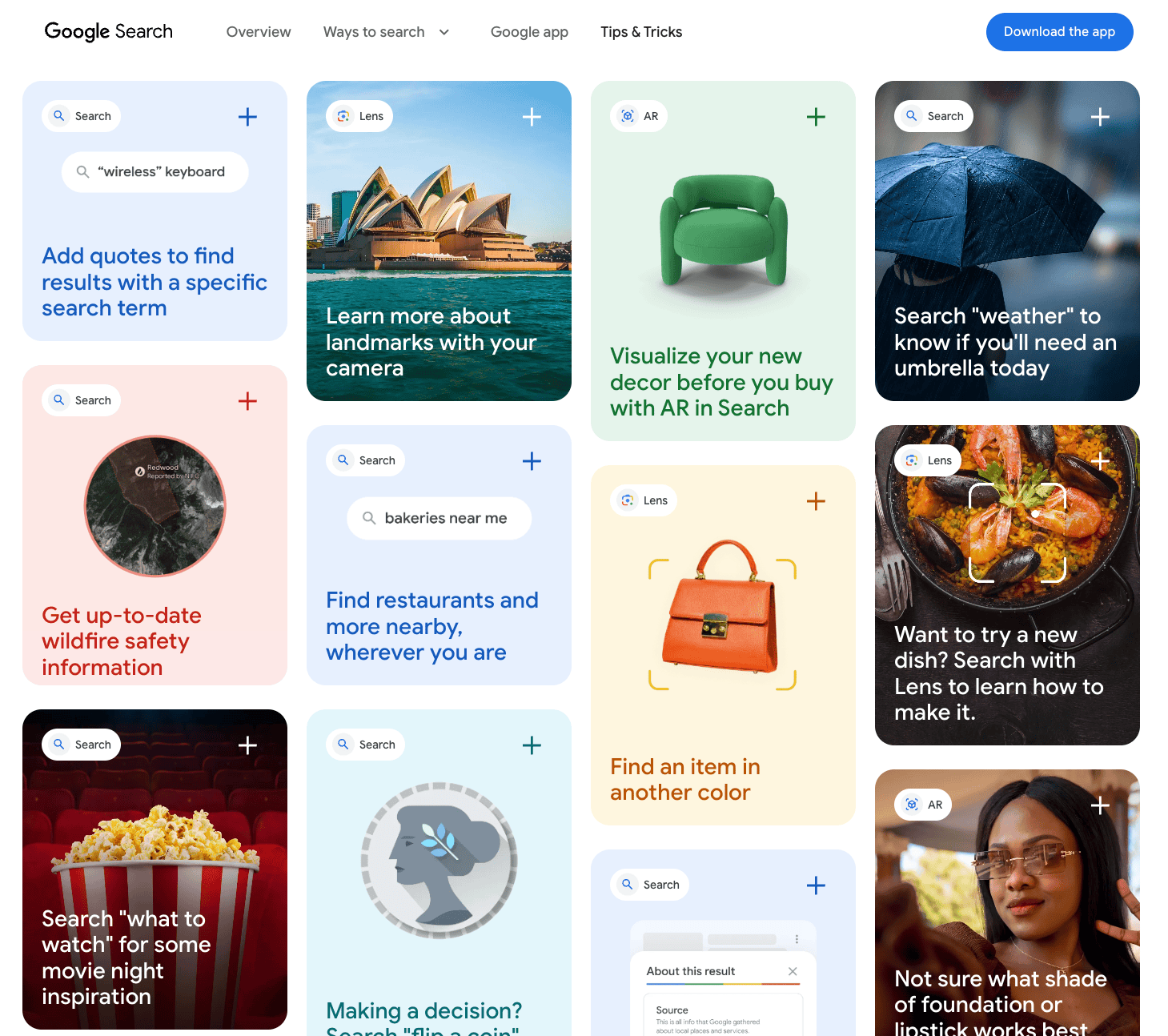
Unfortunately, internet history indicates that we may soon encounter a flood of ads in our AI tools. In the context of my attendant analogy, this would be akin to the attendant exchanging their elegant black-tie attire for the advertisement-laden uniform worn by Formula-One race drivers.
Regarding usability, both search and AI pose challenges:
- Search: Users must input the correct keywords, which necessitates an understanding of the terminology. My friend Kate Moran refers to this process as “keyword foraging.”
- AI: Users need to articulate their issue in writing—highlighting the articulation barrier. Many individuals struggle to write detailed descriptions effectively.
Which presents the greater usability challenge? Keyword foraging or the articulation barrier? Constructing complex prompts for AI, such as generating a usability study test plan, presents a high articulation barrier. Even a relatively simple request, like the attendant analogy mentioned earlier, required considerable descriptive content to extract from Midjourney.
However, for straightforward queries, AI prompts do not require extensive details, and complexities are not necessary. This results in a low articulation barrier when posing questions to AI.
Keyword foraging can be problematic for search users, especially those with limited vocabularies. In contrast, AI is less particular about precise terminology as it interprets the user’s question broadly and provides additional information in the initial response.
Overall, both interactions have their flaws, with AI prevailing for simple questions and even for complex queries where search often falls short, leading AI to triumph, primarily due to its capacity to synthesize tailored responses rather than the query’s usability.
Consequently, websites should anticipate a significant drop in SEO-focused traffic in the upcoming years. Be prepared! For more insights, read the subsequent article, SEO is Dead, Prepare for AI SEO powered Search.
- Google Search Gets Smarter: AI-Powered Overviews Now Live in the US! | LinkedIn
- Exciting News: Enhanced Intelligence for Google Searches Now Live in the United States! – AI SEO Agency
- What exactly is the meaning of SGE in Google? Explanations of the Search Generative Experience – AI SEO Agency
About the Author
Erik is a visionary, User Interface Designer, AI Enthusiast, and Startup Investor with more than 15 years of involvement in advertising, technology, and the startup sector. He has been recognized with Awwwards and has contributed to the establishment of products or brands during his tenure at the Digital Agency of the Decade.
The sole creator of a digital agency in Taiwan: Tenten. The agency aids corporations or startups in developing products and business models, collaborating with entities like FET Telecom, Everrich.com, Vanmoof.com, Chunghwa Telecom Mod, EvaAir, Continental Holdings, and ESun Bank, Cathay Bank to refine their product and digital strategies, pushing them to transform and evolve into “Experience Disruptors,” enhancing their digital innovation and creative strategy.
- Connect with Erik on LinkedIn.
- Sign up for the newsletter to receive the full content of new articles as soon as they are published. Fresh articles on user experience, usability, often delving into the intersection of AI, SEO, B2B, and UX.


